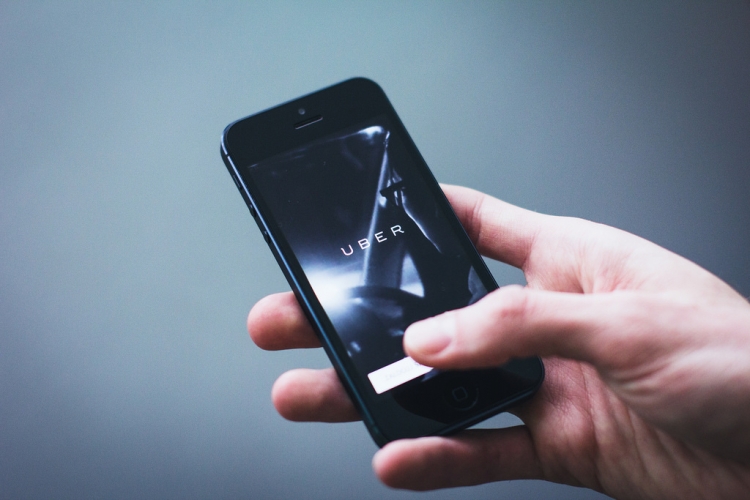Uberization?

Anybody with a smartphone and a credit card can call a car in just a few swipes. It’s the new trendy taxi which comes faster and is often cheaper, but simulates the VIP experience with free bottles of water, unlimited colored candies and often an even iPad for games, news and music. You guessed it, we are talking about Uber.
The Californian multinational was launched in Paris in early 2014. No less than 500, 000 users signed up the same year. Now, France is Uber's second highest-performing market in Europe. Why? It seems that it caters well to the demand of French customers. People love it, people use it and people recommend it. But not quite everybody.
Uber has also faced its fair share of negative publicity since its launch in France. A major criticism coming from the traditional taxis against Uber has been their tendency to hire unskilled drivers. Indeed, their status remains blurry. The New York Times discussed the resulting issue: a lack of concrete consensus on whether Uber drivers are employees or contractors. The Times illustrated this debate by referencing a law suit brought against Uber initiated by a law firm in Boston. The suit accused Uber of illegally paying its drivers as contractors, instead of as as proper employees. This ongoing case raised a heated discussion in Californian court on how skilled a worker has to be to be considered an employee. However, drivers are subject to plenty of quality control in Uber's model. Anyone who wants to become an Uber driver must take a test on his or her knowledge of Paris’s districts. Additionally, the driver ratings we assign are far more impactful than we may realize: if the driver reaches an average rating below 4 stars, the driver is dismissed at the end of the month.
Laurent Delmas, Uber driver for 13 months, says that another anti-Uber argument he hears from his compatriots is that the company is not “made in France.” That’s undeniable. However, even though the American corporation takes 20% of each driver’s salary, the companies workers in France are, for the most part, French.
Money, too, is at the heart of the argument. Traditional taxis have to purchase an overwhelmingly expensive license to practice their job. Those licenses are limited and allowed by the government to be sold by the taxis themselves according to the law of supply and demand. According to servicepublic.fr, a license cost 240,000€ in 2012, and decreased to 180,000€ last year. Taxi drivers argue that Uber drivers “only” have to provide and maintain a car. However, Delmas explains that if an Uber driver wants to earn a fairly good salary, above the minimum wage, he or she has to work around 12 to 13 hours a day, six days a week.
Taxis do not have the monopoly of their industry anymore and that is not pleasing them. Laurent commented that competition is nothing but natural and that it shouldn’t cause such a scandal: “Bakers did not attack Carrefour’s employees for selling their own bread that was much cheaper.” He added, “what’s funny is that when we see anything about the taxis versus Uber debate, we never hear from the customers. Nobody [has asked] why the customer makes the choice to order an Uber rather than a taxi, which is a failure to adapt to the demands of the clients.” Nevertheless, some customers noticed that since Uber became mainstream, traditional cabs improved their services and started to offer bottles of water to their costumers. Are they truly moving forward? Time will tell.
Uber is not a temporary trend in transportation. The impact of Uber on the French suburbs is significant. Numbers show that rates of delinquency have fallen over the past two years in underprivileged Parisian suburbs due to the employment Uber provides. Indeed, an article in Courrier International interviews Uber driver Baba, who said, "Without this work, I would certainly be in jail ... It made me realize that if you work hard, you really can earn enough money to live." Clearly, Uberization has literally become a synonym with integration. The latter proves to be one of the most urgent current objectives of the French government. Why put a spoke in Uber’s wheel?







